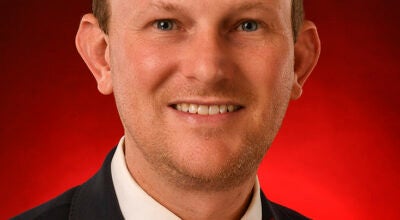Michael Bloomberg comes to Troy
Published 11:00 pm Wednesday, July 10, 2013
Well I don’t actually know if the Mayor will be visiting Troy in person soon, but Mr. Bloomberg personifies the Nanny State in American politics today for his actions as mayor of New York. As the Czar of the Nanny State, he came to Troy in spirit recently when the city enacted a public smoking ban.
“Bloomberg’s New York” emerges from how Mr. Bloomberg views the relationship between citizens and government. Mr. Bloomberg views government’s highest duty as protecting people from themselves. Our nation’s Founding Fathers viewed protecting Americans from those who would do them harm, either domestically (police and the justice system) or internationally (national defense), as government’s highest duty.
The city of Troy’s smoking ban of course just extended prohibitions on smoking in certain locations. The need for rules arises because one person’s smoking clearly interferes with others. While the evidence for significant health risks from second hand smoke is questionable, all of us non-smokers know that smoking is an annoyance. Someone must be inconvenienced if smoking is either allowed or prohibited in a given space.
Today we almost always look first to government to resolve such conflicts. But conflicts can be regulated through voluntary interactions. Property rights assign decisions about permitting the actions which create interference to the owners of homes and businesses. The city of Troy abandoned this regulation based on property rights.
Under property rights, business owners decide whether to permit smoking in all or part of their premises. Customers “vote” for or against smoking through their patronage, and by letting owners know that the smoking policy affects their patronage. Owners have to decide whether inconveniencing smokers or nonsmokers is better business. As the percentage of adults who smoke has fallen and the stigma against smoking increased, more businesses should restrict smoking.
The balancing is never perfect. Owners will have difficulty determining if a loss in business is due to smoking policy, poor food, poor service, uninspired live music, or other factors. People are naturally conservative and anxious about changing practices, so non-smoking sections and businesses probably emerged too slowly in the past.
Voluntary regulation through property rights has two advantages over government regulation. First, a person with a financial stake in the success of the business makes each decision. Politicians will vote for measures like smoking bans for many reasons, like if one of their parents died from smoking. Politicians can indulge such motives because they do not face the financial repercussions from such decisions. As a result government can sometimes impose regulations drastically affecting businesses.
The city council believes that no existing businesses will be forced to close due to the smoking ban, and this is likely true. Troy is not the first city to issue such a ban, and bars and restaurants have managed in other cities. But just because a business is not forced into bankruptcy does not mean it was not harmed. I doubt that the city will reimburse owners if the ban reduces their business’ income. And numerous small burdens can create a terrible business environment.
The second advantage of a property rights approach is owners’ incentive to find compromises both parties can live with. A restaurant owner might be able to run a smoking section without inconveniencing non-smokers. A smoking ban halts any search for innovations to eliminate conflict.
Economists normally stress the role of property rights in the functioning of the market economy. But property rights also reduce conflict and foster cooperation. Government regulation drives parties to extremes – smoking ban proponents often exaggerate the dangers of second hand smoke – as well as foreclosing compromise.
The city government does have a role in a property rights framework. The city manages public spaces, including government buildings, public streets, parks and spaces. The city as “owner” must set policies for their use. Ironically Troy’s public smoking ban did not ban smoking on all of the public’s property, just primarily on private property.
Too often today people demand government regulation because they believe that the absence of government action means no regulation at all. People self-regulate in many ways, through both markets and other voluntary action. We need to be able to recognize self-regulation to properly assess if government regulation can really improve matters.
Daniel Sutter is the Charles G. Koch Professor of Economics with the Manuel H. Johnson Center for Political Economy at Troy University.


